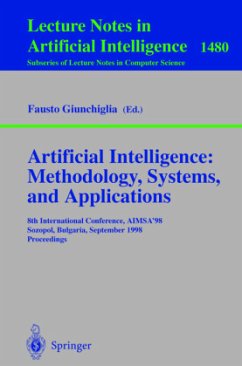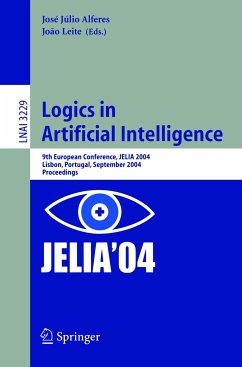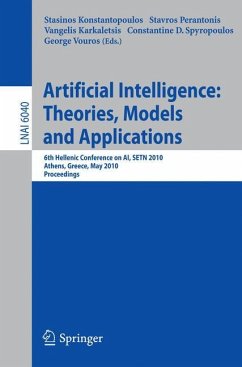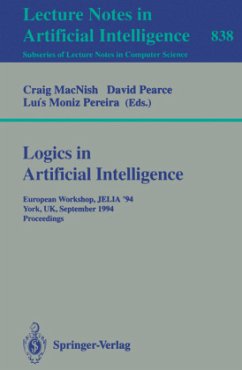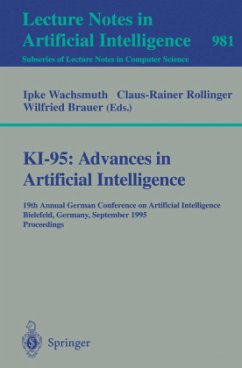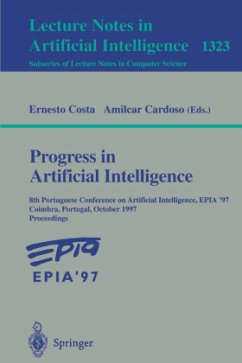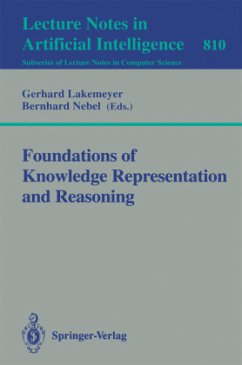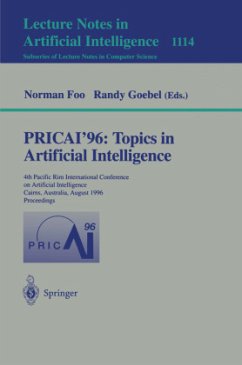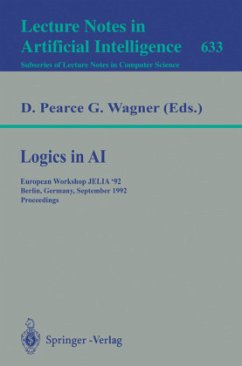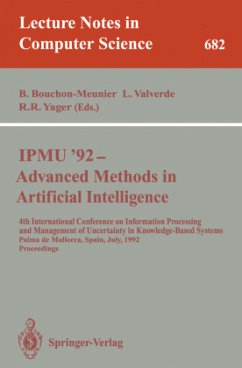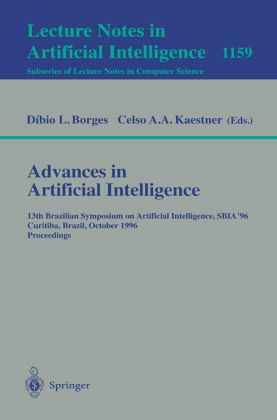
Advances in Artificial Intelligence
13th Brazilian Symposium on Artificial Intelligence, SBIA'96 Curitiba, Brazil, October 23 - 25, 1996; Proceedings
Mitarbeit: Borges, Dibio L.; Kaestner, Celso A. A.
Versandkostenfrei!
Versandfertig in 1-2 Wochen
39,99 €
inkl. MwSt.

PAYBACK Punkte
20 °P sammeln!
This book constitutes the refereed proceedings of the 13th Brazilian Symposium on Artificial Intelligence, SBIA '96, held in Curitiba, Brazil, in October 1996.The 21 revised full papers presented were carefully selected from a total of 66 submissions; also included are one-page abstracts of invited talks and poster presentations. Besides a strong Brazilian component, the majority of contributing authors are well-known researchers from abroad. The papers are organized in topical sections on nonmonotonic reasoning, planning, learning and heuristic search, distributed AI and multi-agent systems, ...
This book constitutes the refereed proceedings of the 13th Brazilian Symposium on Artificial Intelligence, SBIA '96, held in Curitiba, Brazil, in October 1996.The 21 revised full papers presented were carefully selected from a total of 66 submissions; also included are one-page abstracts of invited talks and poster presentations. Besides a strong Brazilian component, the majority of contributing authors are well-known researchers from abroad. The papers are organized in topical sections on nonmonotonic reasoning, planning, learning and heuristic search, distributed AI and multi-agent systems, genetic algorithms, natural language processing, vision and AI applications, and logic programming.





